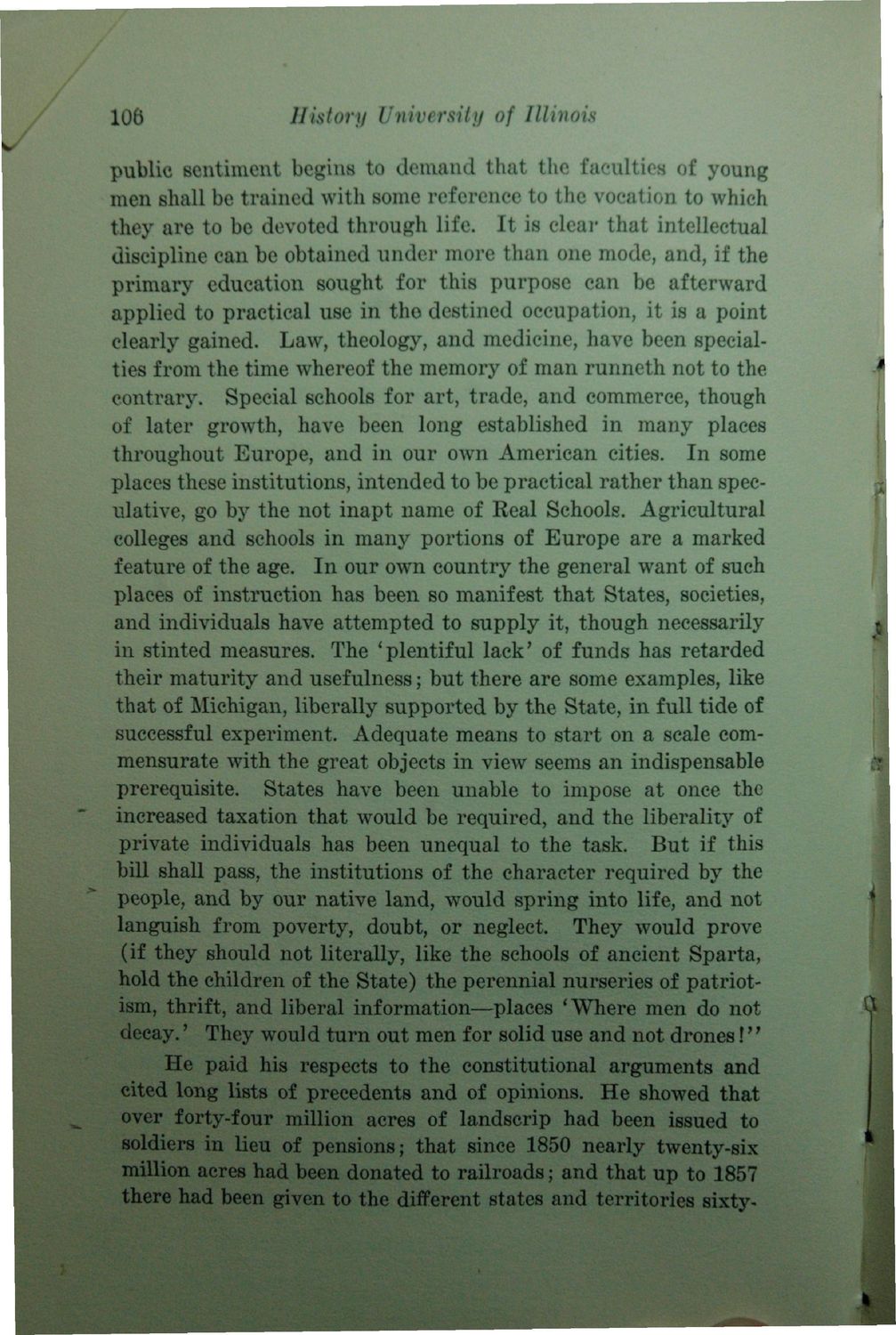| |
| |
Caption: Book - History of the University (Powell)
This is a reduced-resolution page image for fast online browsing.

EXTRACTED TEXT FROM PAGE:
106 History University of Illinois public sentiment begins to demand that the faculties of young men shall be trained with some reference to the vocation to which they are to be devoted through life. I t is clear that intellectual discipline can be obtained under more than one mode, and, if the primary education sought for this purpose can be afterward applied to practical use in tho destined occupation, it is a point clearly gained. Law, theology, and medicine, have been specialties from the time whereof the memory of man runneth not to the contrary. Special schools for art, trade, and commerce, though of later growth, have been long established in many places throughout Europe, and in our own American cities. In some places these institutions, intended to be practical rather than speculative, go by the not inapt name of Real Schools. Agricultural colleges and schools in many portions of Europe are a marked feature of the age. In our own country the general want of such places of instruction has been so manifest that States, societies, and individuals have attempted to supply it, though necessarily in stinted measures. The * plentiful lack' of funds has retarded their maturity and usefulness; but there are some examples, like that of Michigan, liberally supported by the State, in full tide of successful experiment. Adequate means to start on a scale commensurate with the great objects in view seems an indispensable prerequisite. States have been unable to impose at once the increased taxation that would be required, and the liberality of private individuals has been unequal to the task. But if this bill shall pass, the institutions of the character required by the people, and by our native land, would spring into life, and not languish from poverty, doubt, or neglect. They would prove (if they should not literally, like the schools of ancient Sparta, hold the children of the State) the perennial nurseries of patriotism, thrift, and liberal information—places 'Where men do not decay/ They would turn out men for solid use and not drones!" He paid his respects to the constitutional arguments and cited long lists of precedents and of opinions. He showed that over forty-four million acres of landscrip had been issued to soldiers in lieu of pensions; that since 1850 nearly twenty-six million acres had been donated to railroads; and that up to 1857 there had been given to the different states and territories sixty-
| |